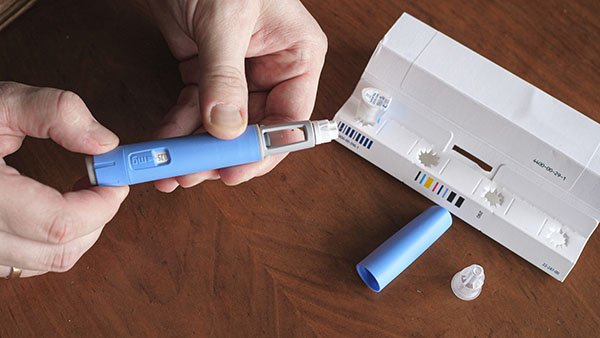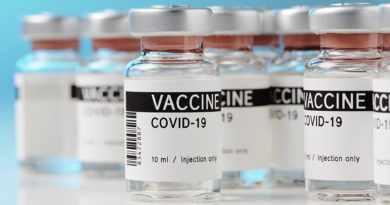QUACKERY: NY Times says injecting yourself with lizard venom peptides can prevent COVID deaths

QUACKERY: NY Times says injecting yourself with lizard venom peptides can prevent COVID deaths
The media is abuzz with new claims that the popular obesity drug Wegovy is helping fat people to avoid death from the Wuhan coronavirus (COVID-19). Like other GLP-1 drugs, Wegovy is synthesized from venom peptides of the Gila Monster reptile creature. As Business Insider reports, “It all started back in the early 1990s, when government researcher Dr. John Eng discovered that Gila monsters have a special hormone in their venom.” This led to GLP-1 drugs being based on the venom peptides produced by the Gila Monster. “We wouldn’t have [GLP-1 drugs] without Gila monsters — their hunger-regulating venom inspired weight-loss drugs,” says Business Insider.
The New York Times ran a piece claiming that a large clinical trial found that people who injected themselves with lizard venom peptides during the “pandemic” are less likely than others to die from a COVID infection.
According to the report, the Wegovy patients still tested “positive” for COVID at the same rate as non-patients taking a placebo. However, the death rate in the Wegovy group was 33 percent less than the placebo group, and for reasons that the Times says “are not clear.”
More than likely, it was a mere coincidence that the sample groups showed a disparity based on their usage or non-usage of Wegovy. What would lizard venom peptides have to do with a COVID infection anyway?
Whatever the case may be, the Times wants its readers to know that taking Wegovy may prolong one’s lifespan in the event that he or she tests positive for COVID.
Dr. Jeremy Faust, an emergency room physician at Brigham and Women’s Hospital, wrote an editorial about the finding in which he called it “stunning.” The paper in question was published in The Journal of the American College of Cardiology.
(Related: Have you checked out our report about how Ozempic and Wegovy can trigger a devastating wave of organ failure in some patients? The damage, as you might expect, closely resembles the symptoms of snake bites.)
It’s probably just coincidence
The study was not designed to look at the effects of Wegovy on people who test positive for COVID, by the way. It also did not determine that people who take Wegovy are any healthier than their non-user counterparts.
“It is a randomized trial and the infection rates were similar, so this represents top-notch evidence,” claims Dr. Harlan Krumholz, a cardiologist at Yale University and editor-in-chief of the journal in which the study was published.
When asked if he thinks Wegovy is having any direct effect on COVID infections, Dr. Benjamin Scirica, a trial investigator, cardiologist and senior physician at Brigham and Women’s Hospital said that neither he nor his team members ever anticipated that there would be a drug effect.
The trial, sponsored by Wegovy manufacturer Novo Nordisk, was already underway when COVID struck out of nowhere. The actual goal of the research was to see whether the weight-loss drug prevents deaths from heart disease and heart attacks.
In the process, researchers made a much different discovery that piqued the interest of the Times in tying Wegovy to reduced COVID deaths. The problem is that those who participated in the trial were already at higher risk of dying or becoming very seriously ill from COVID because of obesity and heart disease.
Keep in mind that most people who take Wegovy are fat and more than likely sick. The reason they opted for the drug was to shed all that weight and regain some kind of normalcy in their lives.
“We had to make dramatic changes to make sure the study would continue and that the subjects would continue to get their medications,” Dr. Scirica said about the complications that arose due to the “pandemic.”
The research may have also been skewed by the new “touchless” protocols that were introduced mid-study to keep investigators away from patients.
“Most of our studies in the cardiovascular world – with statins or other cardiovascular drugs – have a pretty good effect on cardiovascular deaths but don’t affect non-cardiovascular deaths,” Dr. Scirica added.
Sources for this article include:


